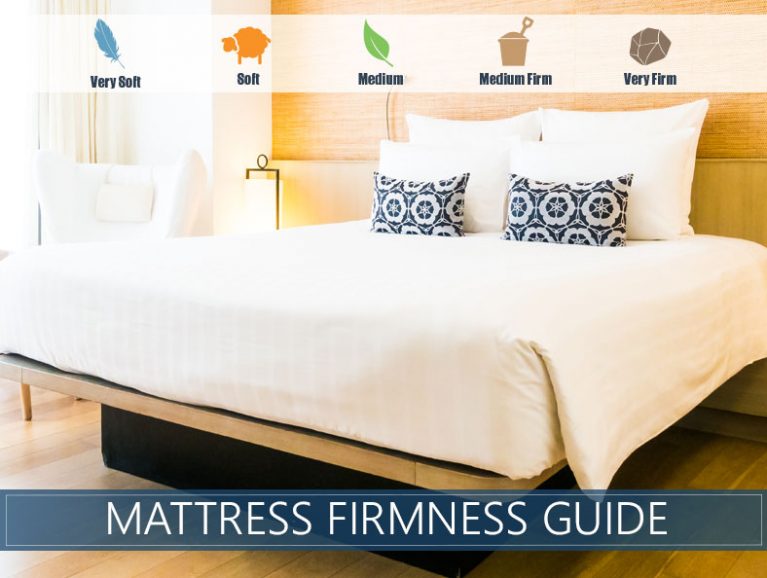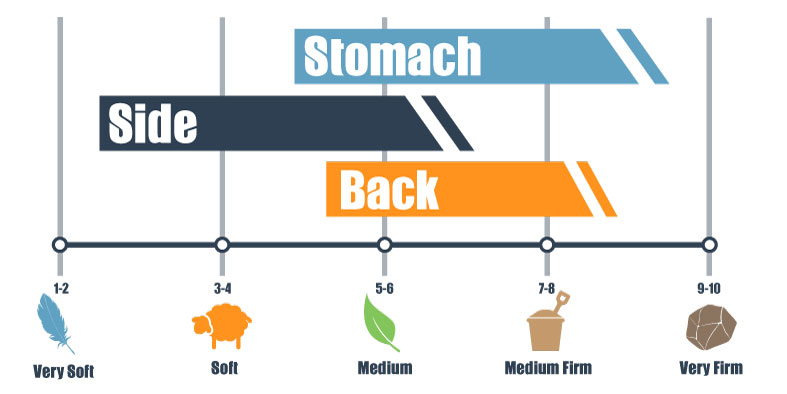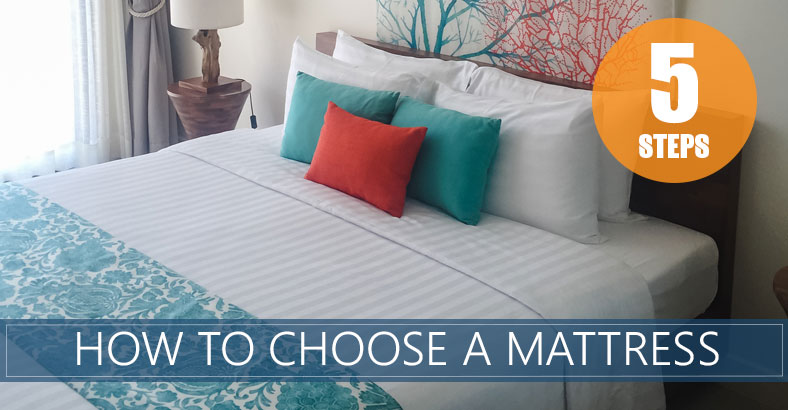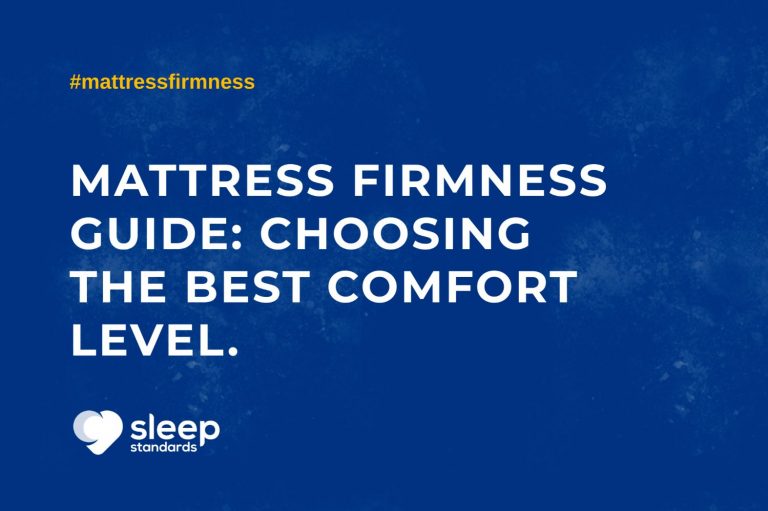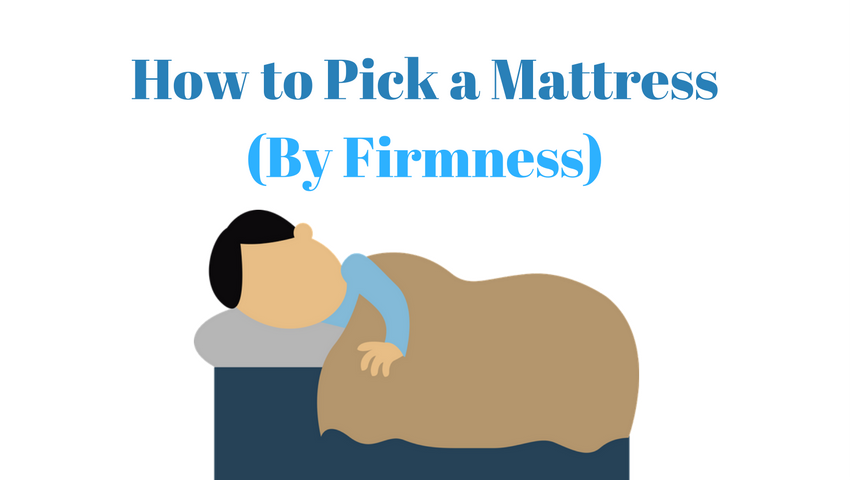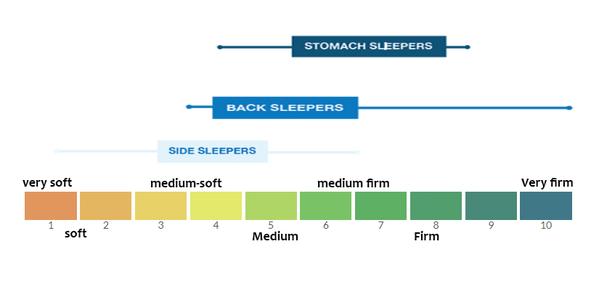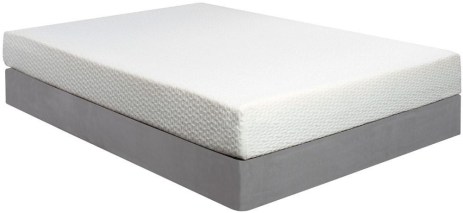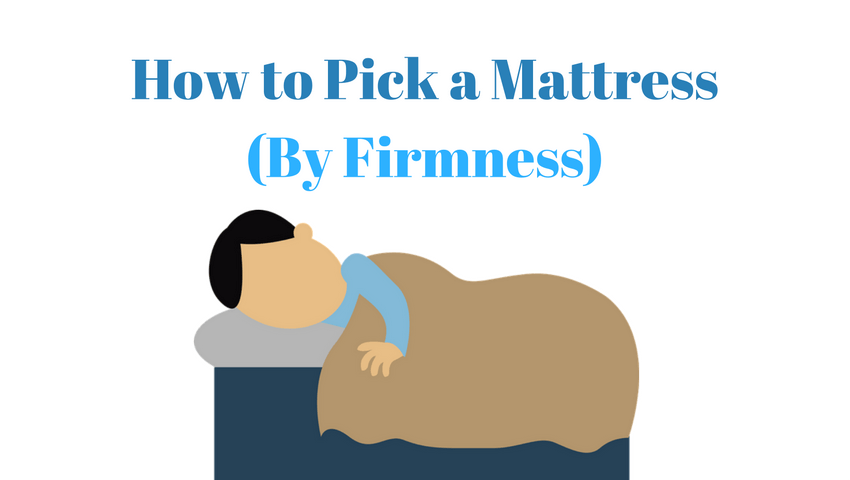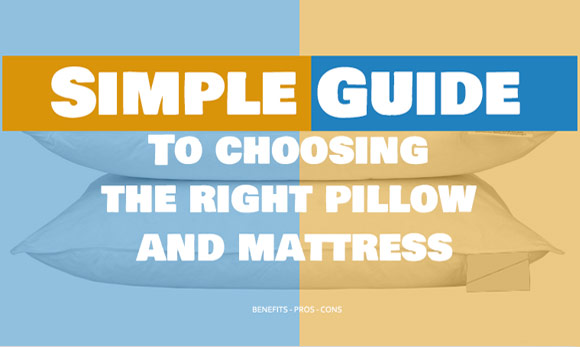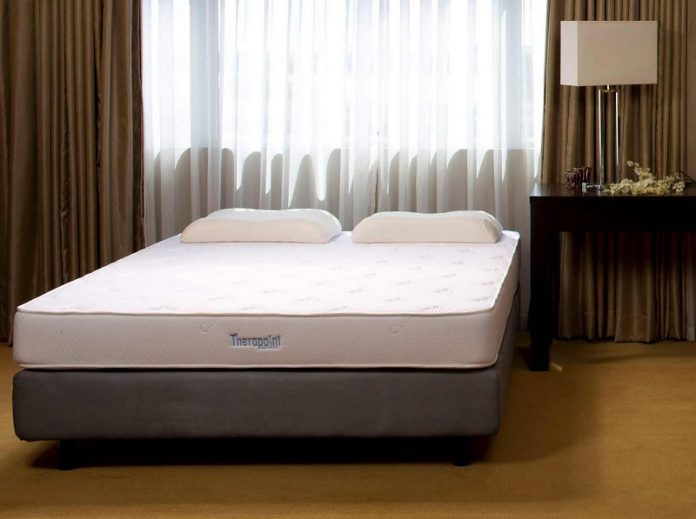
What are your main considerations when buying a mattress? Is it the size? Price? Aesthetics? Guarantee? Have you ever thought about buying based on strength? Unfortunately, many people don't.
For some, the firmness of the mattress is at the bottom of the priority list. This shouldn't be the case. The firmness of a mattress contributes to the quality of your sleep. Should this be taken for granted? The answer is a big NO.

First, let's discuss what mattress firmness is. This is how a mattress feels when sleeping and how much comfort it offers. At one end of the spectrum, some mattresses may be too firm. You may feel like you are sleeping on cold, hard floor. At the other end, you could have something so soft that it feels like a cloud.
However, the firmness of the mattress is extremely subjective. A certain mattress can be comfortable for one person, but uncomfortable for another. For this reason, mattress manufacturers may offer the same mattress with different strength levels. They even offer the option of having different strength levels on different sides of the mattress. If you are wondering whether this is actually possible, this is the case.
The firmness of a mattress can depend on how much support it offers. However, they are not the same thing. Support relates to how well the mattress aligns the spine with the rest of the body. When a mattress relieves pressure points and aligns the body, it is supportive. This is regardless of whether it is soft or hard.
On the other hand, firmness refers to how soft or hard a mattress is. It can also refer to the comfort that a particular mattress offers, as mentioned earlier.
Many mattress manufacturers (e.g. Manufacturer of latex mattresses) now offer a type of strength that they claim is universally comfortable. However, this does not apply to everyone. Some people still need something firmer or softer, depending on a number of factors. To simplify matters, this article deals with the firmness of the mattress in three stages: soft, medium and firm.
Which level of strength is right for you depends on a number of things. For starters, it may depend on what position you sleep in. Are you a back sleeper, a side sleeper or a stomach sleeper? It can also depend on how much you weigh. Are you on the heavy side or the light side? You should consider all of these factors when choosing your next mattress.

- Side sleeper: This is probably the most common sleeping position. Side sleepers are those who sleep in a fetal, log, and yearner position. First, in the fetal position, the arms and legs are pinched close to the body. In the logarithmic position, the arms and legs are straight. Finally, in the yearling position, the legs are straight, but the arms are stretched out in front.
People who sleep on their side twist their bodies more than those in other positions. For this reason, it is important that their pressure points are relieved. The ideal would be a mattress that adapts to the natural curves of the body. This enables the mattress to fill all open spaces.
If you have a side sleeper, your body needs to sink a little bit into the mattress. You would also have to distribute your weight more evenly. A softer yet thicker mattress is enough. However, a mattress should not be too soft for you to sink as you sleep on it.
- Back sleeper: Experts say that the best position is to sleep with your arms on your back. Sleeping in the back also includes the starfish position, in which all limbs of a person are spread out. The problem is that a lot of people don't find it really comfortable to start with. You can remedy this by sleeping on a bed that is suitable for this position.
Back sleepers benefit from a slightly denser mattress combined with a thinner comfort layer. About two inches would be enough. What has to happen is that the mattress fills the space in the lower back area. This should be done without getting the rest of the body out of position.
- Stomach sleeper: These people are the rarest in the bunch. Some claim that sleeping on your stomach could help stop snoring. However, this is not the case in humans, as some may find it more difficult to breathe. The best we can recommend is to find a mattress that will reduce the negative effects of this position.
Those who sleep on their stomach usually have their heads turned to the side. This could put a massive strain on the neck. Stomach sleepers need something relatively dense and stiff. If you have a stomach sleeper and use a softer mattress, this can lead to an unnatural curvature of the back. This also applies to the neck and hips. Firm and thin comfort layers are ideal for stomach sleepers.
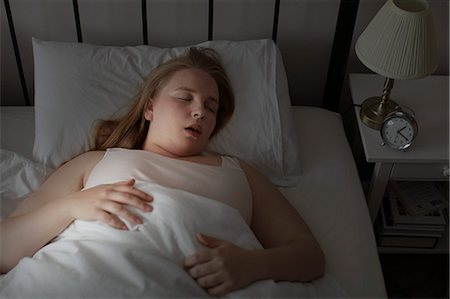
- Heavy: If you are heavily adjusted, you will need a slightly firmer mattress. You would do well with something in the middle of the park in terms of strength. However, you would benefit more from something with more support than that.
People who weigh more exert much more pressure on a mattress when lying down. A firm mattress like Latex mattressprovides more support and ensures that you don't just dive in. Weight and pressure points are distributed more evenly during sleep, which reduces pain and discomfort.
The thickness of a mattress is another important aspect. Heavier people benefit from a thicker support layer. While a few inches more than usual would be enough, 10 inches is recommended
- Light: Lighter people need less support than their heavier colleagues. For this reason, they could easily handle a soft to medium-strength mattress. Thinner people weigh less, which means that they don't sink as much into something stiffer. As we learned, it is necessary to sink a little bit into the mattress. This allows the mattress to adapt to your body shape and reduce pressure points.

Different types of pain and discomfort can be alleviated by varying the firmness of the mattress.
- Back pain: A medium firmness mattress is ideal for back pain. A heavier person would need a firmer mattress to help with lumbar problems.
- Hip pain: This is most likely due to incorrect alignment of the spine. You need to look for a mattress that supports your lower back. A soft to medium-hard mattress relieves hip pain considerably.
- Shoulder pain: A mattress that is too firm usually causes shoulder pain. If you feel uncomfortable in this area, it may be time to buy a softer mattress.
There are many options available when it comes to mattresses. The options are there because not all mattresses are the same.
Make sure you have an idea of your sleep needs and nuances. If you know this, this is a great help so that you can choose the right mattress firmness. Among other things, write down things like your weight and where you feel pain and discomfort.

Bibo Chen is an entrepreneur by heart and a writer by heart. He is a co-founder of Latex bear, a company specializing in mattresses and raw materials, which aims to offer people safe and environmentally friendly bed solutions. He manages blogs focusing on sleep tips, ideas, and advice.
